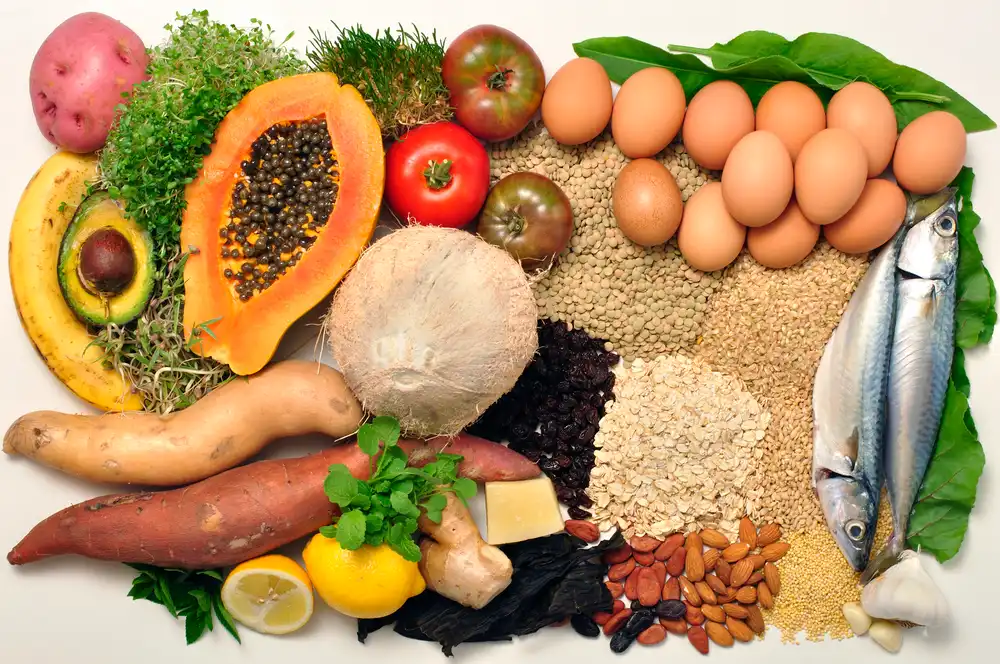Nutrition plays a vital role in the health of both you and your baby during pregnancy. The food you eat provides the essential nutrients needed for your baby’s growth and development while also supporting your energy levels, immune system, and overall well-being. But with so much information out there, it can be overwhelming to know exactly what to eat for a healthy pregnancy.
In this ultimate guide, we’ll break down the key nutrients you need, the best foods to include in your diet, and tips for maintaining a balanced and nutritious pregnancy diet. Whether you’re in your first trimester or getting ready for the final stretch, the right nutrition will help you feel your best and ensure that your baby has everything they need to thrive.
1. Focus on Protein for Baby’s Growth
Why It’s Important: Protein is crucial for the development of your baby’s tissues, organs, and muscles. During pregnancy, your body needs extra protein to help form the placenta, support the increased blood supply, and promote the healthy growth of your baby.
What to Eat:
-
Lean meats such as chicken, turkey, and beef
-
Fish like salmon and trout (low in mercury)
-
Eggs
-
Dairy products like milk, cheese, and yogurt
-
Plant-based sources like lentils, chickpeas, quinoa, and tofu
Why It Matters: Protein provides the building blocks for your baby’s development and supports the expansion of your body’s tissues. Aim to include a source of protein in every meal to meet your body’s increased demands.
2. Include Healthy Fats for Brain and Eye Development
Why It’s Important: Healthy fats, particularly omega-3 fatty acids, are essential for the development of your baby’s brain, eyes, and nervous system. These fats also help in the absorption of fat-soluble vitamins like vitamins A, D, E, and K.
What to Eat:
-
Fatty fish such as salmon, sardines, and mackerel
-
Avocados
-
Nuts and seeds, including walnuts, chia seeds, and flaxseeds
-
Olive oil
-
Nut butters like almond or peanut butter
Why It Matters: Omega-3 fatty acids, in particular, support cognitive development and eye health. Incorporating healthy fats into your diet ensures that your baby has the right nutrients for optimal brain and nervous system growth.
3. Stay Hydrated for Overall Health
Why It’s Important: Staying hydrated during pregnancy is key to maintaining healthy amniotic fluid levels, supporting digestion, and preventing dehydration. Dehydration can lead to headaches, fatigue, and complications such as constipation.
What to Drink:
-
Water (aim for 8-10 cups a day)
-
Coconut water (to replenish electrolytes)
-
Herbal teas (ginger or peppermint for nausea relief)
-
Fresh fruit juices (without added sugar)
Why It Matters: Proper hydration ensures that both your body and your baby remain hydrated, which is essential for healthy circulation, fluid balance, and nutrient transport. Dehydration can also increase the risk of premature labor.
4. Ensure Adequate Folate (Folic Acid) Intake for Neural Tube Development
Why It’s Important: Folate, or folic acid (the synthetic form), is one of the most important nutrients during pregnancy. It helps prevent neural tube defects in the early stages of pregnancy, such as spina bifida, and supports healthy fetal development.
What to Eat:
-
Leafy greens like spinach, kale, and broccoli
-
Citrus fruits like oranges and grapefruits
-
Beans, peas, and lentils
-
Fortified cereals and bread
-
Avocados
Why It Matters: Folate is essential in the early stages of pregnancy for proper spinal cord and brain development. It’s recommended to start taking folic acid supplements before conception and continue through the first trimester to reduce the risk of neural tube defects.
5. Get Enough Iron for Healthy Blood and Energy Levels
Why It’s Important: Iron is essential for producing red blood cells, which help carry oxygen to your baby. During pregnancy, your blood volume increases, so your iron needs also rise. Without enough iron, you may develop iron-deficiency anemia, leading to fatigue and a weakened immune system.
What to Eat:
-
Lean meats like beef, chicken, and turkey
-
Leafy green vegetables such as spinach and kale
-
Beans, lentils, and tofu
-
Fortified cereals and whole grains
-
Dried fruits like apricots and raisins
Why It Matters: Iron helps prevent anemia and supports the healthy development of your baby’s organs and tissues. Pair iron-rich foods with vitamin C (like oranges or bell peppers) to enhance absorption and combat fatigue.
6. Don’t Forget About Calcium for Bone Health
Why It’s Important: Calcium is essential for the development of your baby’s bones and teeth. Your body needs additional calcium during pregnancy to support both your health and your baby’s skeletal development.
What to Eat:
-
Dairy products like milk, yogurt, and cheese
-
Leafy greens like broccoli and collard greens
-
Almonds and seeds (chia, sesame)
-
Fortified plant-based milk (such as almond, soy, or oat milk)
-
Fish like sardines and salmon (with bones)
Why It Matters: Calcium supports your baby’s bone development and helps you maintain strong bones and teeth. If you don’t get enough calcium, your body will draw it from your own stores, which can affect your bone health in the long run.
7. Focus on Fiber for Digestive Health
Why It’s Important: Pregnancy hormones can slow down your digestive system, leading to constipation and bloating. Eating enough fiber helps keep things moving and prevents uncomfortable digestive issues.
What to Eat:
-
Whole grains like oats, quinoa, and brown rice
-
Fruits like apples, pears, and berries
-
Vegetables such as sweet potatoes, carrots, and peas
-
Legumes, including beans, lentils, and chickpeas
-
Nuts and seeds
Why It Matters: Fiber helps maintain healthy digestion, preventing constipation, and promoting overall gut health. Plus, it helps you feel fuller longer, which can be beneficial during pregnancy when you may experience fluctuating appetite.
8. Vitamin D for Healthy Bones and Immunity
Why It’s Important: Vitamin D plays a crucial role in bone health by aiding calcium absorption. It also supports a healthy immune system, which is important during pregnancy as your body’s immune response changes.
What to Eat:
-
Fatty fish such as salmon, mackerel, and tuna
-
Fortified milk, plant-based milk, and cereals
-
Egg yolks
-
Mushrooms (especially those exposed to UV light)
-
Vitamin D supplements, as recommended by your doctor
Why It Matters: Vitamin D supports both your and your baby’s bone development. A deficiency can lead to complications like bone weakness, so it’s essential to ensure you get enough during pregnancy.
Conclusion:
Nutrition is a key factor in ensuring a healthy pregnancy and supporting the growth and development of your baby. By focusing on a balanced diet rich in essential nutrients like protein, healthy fats, iron, calcium, and vitamins, you can provide the best possible start for your little one. Don’t forget to stay hydrated, get enough fiber, and prioritize rest as part of your overall pregnancy wellness plan.
Remember, it’s always a good idea to discuss your dietary needs and any supplements with your healthcare provider to ensure you’re meeting both your and your baby’s needs. At PregnantKate, we’re here to guide you every step of the way with expert advice, tips, and support throughout your pregnancy journey!



